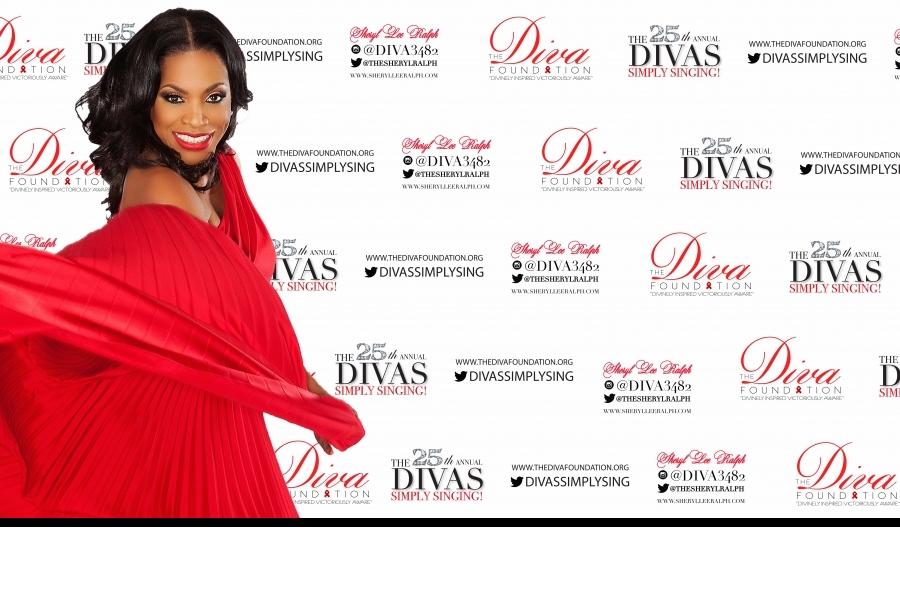The stars will be out this weekend at the Dell Music Center for the longest consecutively running HIV/AIDS benefit concert.
The curtain goes up for the 25th anniversary of “DIVAS Simply Singing!” at 7 p.m. Aug. 22, a fundraiser for DIVA (Divinely Inspired Victoriously Alive) Foundation. The HIV/AIDS awareness-raising organization is the brainchild of actor, singer and activist Sheryl Lee Ralph, who originated the role of Deena Jones in Broadway’s “Dreamgirls” and launched the organization in tribute to the many loved ones she lost to the disease.
The show will feature performances by a diverse collection of singers, including Grammy and Tony nominees and winners. The lineup includes Alyson Williams, Meli’sa Morgan, Faith Evans, Melba Moore, Monifah, Candance Benson, Angela Winbush, Carol Riddick, Matthew Schuler, Anthony Wayne and the Urban Guerilla Orchestra. The event will include on-site testing and HIV/AIDS resources.
Ralph recently spoke with PGN about what’s changed, and what hasn’t, since she launched DIVA Foundation in 1990.
PGN: What personal effect did the HIV/AIDS epidemic have on you in those early years that motivated you to get DIVA Foundation off the ground?
SLR: What really, really motivated me was seeing my friends suffer and die. It was horrible how sick they became, how in need of human kindness they were and that people found it so easy to turn their backs on people who — before they heard were ill — had been their friends, family. In some cases, it was their father, son, daughter. It was just crazy. I just couldn’t believe it. That’s what got me involved. The little church girl in me said, “We can do better than this.”
PGN: Did you anticipate when you founded the organization that it would still be thriving 25 years later?
SLR: It’s very interesting when you’re 26 and you think about life 25 years later and you’re like, “Oh no, there won’t be a need for this. I’ll be doing this, that and the other thing.” If anybody told me there would still be a need for DIVAS back then, I would have said, “No, because we’ll do what’s needed. We’ll care, fight the good fight, not act like everybody doesn’t really matter in this. We’ll have a cure or vaccine and we won’t need this.” But here we are still doing it. I never thought that from my “Dreamgirls” days 35 years ago that I’d still be raising up the memories of all the friends I lost. Never, ever.
PGN: Stigma has been a part of the disease throughout the last few decades. How have you seen that evolve, and do you think it is improving?
SLR: I’m not sure because you still have people who don’t want their families to know that they’re HIV-positive. One of the projects I worked with over the years was the AIDS Quilt. That’s over 25 miles long but less than 5 miles of it is dedicated to people of color. That’s because of the stigma, shame and silence. I worked on a project called “Call My Name” where we literally went across six cities in the South to get people to come out and talk about their family members — call their name, add them to the quilt. Let people know they lived, they were good, kind people and they just died of a disease. That was hard.
PGN: The LGBT community has been disproportionately affected by the disease, but it’s also been growing among women of color in recent years. Do you think enough attention and resources have been allocated to this community?
SLR: They put a lot of attention on it and I believe that time and attention is paying off but could it be more? Absolutely. You can get to the results of studies on men quickly. You cannot get the results of studies on women as quickly. Come on, we can do better than this. People want to ignore the fact — I don’t care what your sexual preference is — there is a natural connection between males and females. If I’m not your lover, I’m your mother and if you’re lucky, I’m your friend. We have to pay attention to that. I don’t like it when people try to hog the disease and act like it’s just theirs. HIV/AIDS is a human disease and it does not discriminate.
PGN: Turning to the event itself, what type of crowd do you usually get?
SLR: We get a very mixed crowd. I’ve told audiences at past shows that we have the most diverse audience you’re ever going to see at an American concert outing: young, old, gay, straight, black, white, red, yellow, hot dog today, donut tomorrow … It’s a very diverse audience.
PGN: Is there extra excitement because this is the 25th anniversary?
SLR: Oh, definitely. We’ve survived the ups and the downs. We don’t live off government grants; we depend solely upon the kindness of strangers. The show happens because of sheer will and determination and my desire to see artistic activism in action. I’m very happy my friends, the divas, continue to stand by me and stand up for the people they have lost. I’m happy they’re able to help erase some of that stigma, I just wish that we did not have to do it. But I’m very excited to be able to bring this to the City of Brotherly Love and Sisterly Affection at a venue like Dell, which is one of the most under-rated outdoor venues in the country, a jewel in the middle of this city. n
For more information or tickets, visit www.divatickets.com.

